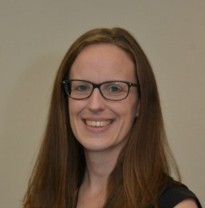Glasgow based companies like Morgan Stanley, JP Morgan and
Incremental are amongst 60 plus signatories to the new Digital
Technology Education Charter, to attract more young people into
learning digital skills.
The Charter aims to bring together industry and academia to
inspire the next generation into computing, and raise awareness of
the diverse career opportunities available.
The inspiration for the Charter comes from computing science
teacher, Toni Scullion who said, 'There is on average 13,000
new digital jobs created in Scotland every year but through
apprenticeships and graduates, we are only training around 5,000 to
fill them and not all schools even teach computing science anymore.
Inspiring pupils at a young age is crucial to filling this skills
gap.'

At Morgan Stanley, we are excited to be part of an
initiative that promotes a partnership between industry and
education, helping to tap into and develop the exceptional young
talent we have in Scotland and hopefully raise awareness to current
and future generations of the opportunities available to them in
the digital sector.
Technology underpins almost every aspect of how we all live,
rest, work and play, so the opportunity for young people to be at
the cutting edge of driving change both now and in the future is
incredible. The Charter
will drive both broader awareness of how dynamic and wide-ranging a
subject Computer Science can be, and simultaneously will make these
opportunities more accessible.
Research has identified that a shift in language can help
inspire early-year students. A 2019 study of primary school-aged
children by New York University and Princeton University concluded
that action-focused language such as 'doing science' - instead of
identity-focused words such as 'being scientists' - led to higher
rates of commitment to science, particularly for girls.
While this research was in regards to science, in my personal
opinion, it's not unreasonable to conclude that action-focused
language would have a similar effect on all STEM subjects,
including technology (which is already suffering a lack of career
take-up by students). It seems odd that the mere difference between
'being' and 'doing' can have such an impact on career commitment.
But, recognising that it does, and factoring in other influences,
makes the need for action a greater imperative.
The Charter affords us the opportunity through collaborative
partnerships to both dramatically increase and accelerate the
trajectory of our young people. We have a responsibility to future
generations to do so as a matter of urgency.
Keep up to date with all the business and community news from
Glasgow's IFSD by subscribing to our monthly
e-newsletter or connecting on LinkedIn
and twitter.#IFSD